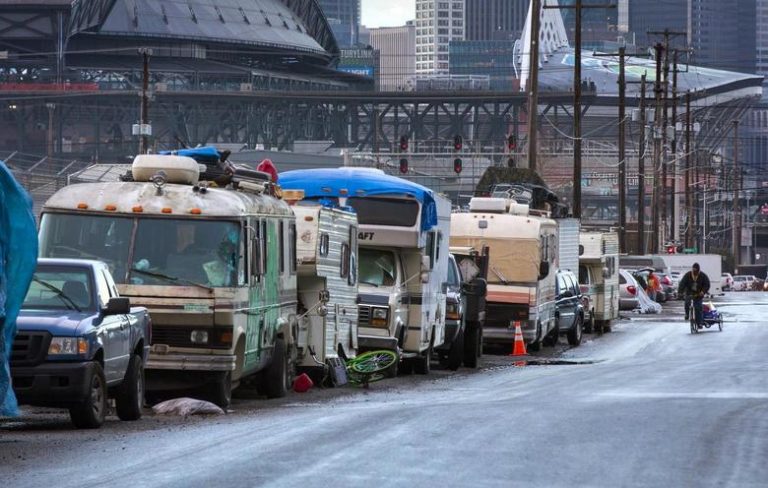Published on December 3, 2019

Graham Pruss is familiar with the trials and tribulations of living out of an RV.
As part of his research for his anthropology PhD at the University of Washington in Seattle, Pruss bought and lived in an RV for five months. Within the first 12 hours of doing so, he says, police issued him tickets and former neighbours spurned him.
“That was really startling,” he said. “I didn’t expect that level of isolation and unwelcomeness.”
Some people stared at him or told him to get lost. Others shook his RV in the middle of the night.
As Metro Vancouver’s housing crisis continues, more people are living in RVs. But they face a hostile environment. Some B.C. cities have recently banned people from sleeping in large vehicles overnight. And in the Lower Mainland, the few RV parks that remain have years-long wait lists.
Given the increasing need for RV dwellers to find a legal place to park, should cities step up and provide space for them?
Pruss thinks so.
For two years he participated in Seattle’s Road to Housing program, which provided space for 12 RVs in church parking lots across the city. Pruss estimates that a parking space cost $15,000 per year to rent, which he says is cheaper than building and maintaining emergency shelters.
People living in RVs is an inevitable reality, Pruss says, and cities should do more to support them by including them as part of their existing emergency shelter systems so people can be connected to social services like social workers and mental health support.
Continue reading at CBC News.
Originally written by Maryse Zeidler for CBC News.